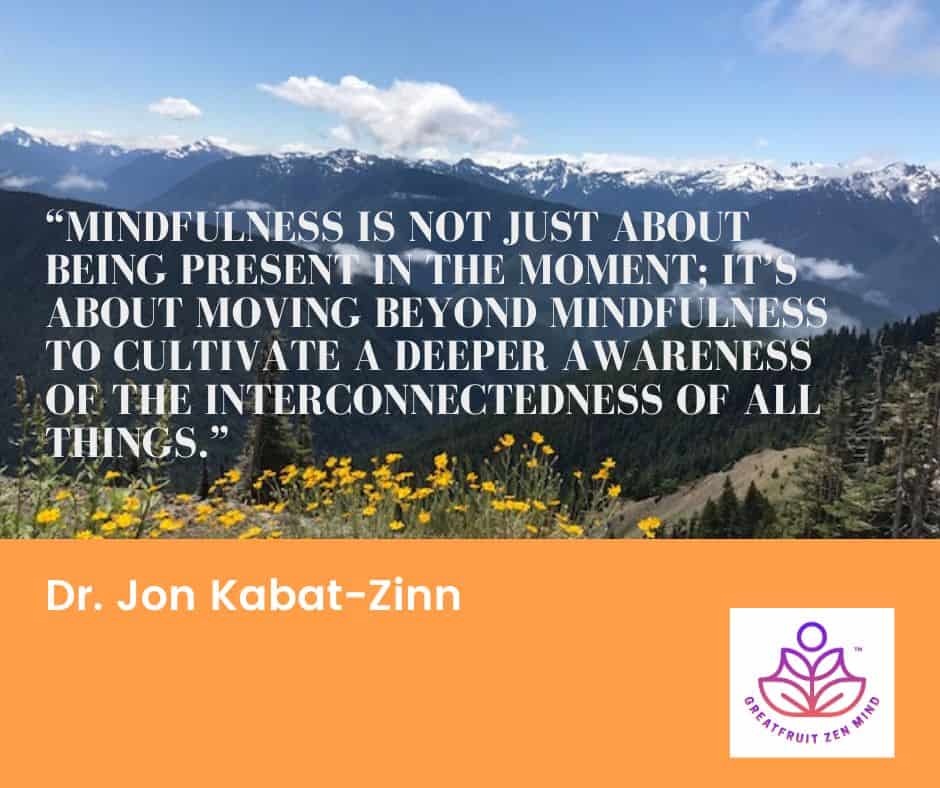Read time 5 minutes. Beyond Mindfulness is a stand alone article in our series regarding mindfulness and meditation.
I recently read an article on McGill regarding mindfulness meditation which addressed some of the possible shortcomings of that practice.
The article states that many studies seem to indicate that, at least in the short term, mindfulness meditation seems to offer limited benefit to those who practice it. Furthermore, these studies seem to show that doing something, anything, can be just as beneficial as practicing mindfulness itself.
It also talks about many of the popular meditation apps. Apparently many users abandon these apps in short order, while others who use them only do so for about four minutes a day. Not exactly transformative.
On the surface, this sounds like a failure. But it’s actually an opening.
Zen is not a get peace quick scheme
Zen is not separate from mindfulness—but it does ask more of us. It asks for our commitment, not just our curiosity. It isn’t about soothing ourselves. It’s about seeing ourselves—clearly, repeatedly, without escape.
Expectations are the trap. Wanting peace is what first brings us here, but eventually, we’re forced to see: even the desire to be desireless is just more desire. Practice reveals this. Not quickly. Not cleanly. But relentlessly.
There’s no snap-of-the-finger moment, no enlightenment delivered on schedule. That includes mindfulness. That includes Zen.
Beyond mindfulness. Beyond self-improvement.
Many popular mindfulness apps focus purely on attention training. They’ve been stripped of ethics, faith, or philosophy—reduced to a kind of mental gym. And yes, they can help. But without context, they rarely sustain.
We must be cautious about what we’re expecting. If self-improvement is our only motive, we’re practicing from expectation, not presence. We become ultra-aware of our thoughts, but then judge ourselves for not improving fast enough. The very mechanism of mindfulness turns against itself.
Meet reality where it’s already happening
Studies seem to indicate that doing something, anything, can be just as beneficial as doing mindfulness meditation. And this is where a comprehensive Zen lifestyle can take us beyond mindfulness.
We have all heard of the therapeutic benefits of certain hobbies, such as gardening or drawing. Even regular exercise is said to have comparable benefits to our mental health.
But Zen pushes us further. It doesn’t ask us to isolate time for presence—it asks us to live in it. Gardening, drawing, exercise—these aren’t distractions. They’re portals. When we’re immersed in the moment, imaginative/emotive activity quiets down. That’s mindfulness too. But it’s mindfulness with depth—because it meets reality where it’s already happening.
Now remember our practice of the inner glance. These glimpses toward presence are most powerful when life isn’t calm. Not in the meditation room. In traffic. At work. Mid-discomfort. The fluctuations of life make the best training ground.
Moments such as these provide us with rare opportunities. We can actually go beyond mindfulness and take a glimpse at the very core of our being.
The weight of expectations
I have lived in the city of Seattle for many years. There is a widely believed mythology that the gray, gloomy days of winter cause an increase in the number of suicides relative to other cities. Interestingly, however, this study relating to sunshine and suicide rates seems to suggest otherwise. Oddly enough, it is during the sunny months of spring and not the during the dark days of winter or the holidays that the risk of suicide is at its highest. It is unclear exactly why this is the case.
Some say it’s chemical. I wonder if it’s expectation. If you believe the sun will fix your sadness, and it doesn’t—what then? The empty promise of relief in some future moment disappears. And then despair grows teeth.
We all carry some version of this. Waiting for the right condition to feel whole. But wholeness isn’t conditional. Presence doesn’t arrive later. It’s here, or it’s not.
Something similar might be happening regularly within each of us. We are wired to be able to deal with, by and large, whatever is happening to us at any given time. It is only when we take leave of the present moment, by way of imaginary expectations and promises, that the situation can become more daunting or grim.
Every moment is an opportunity for practice
So how do we move beyond? We anchor ourselves in correct understanding. Zen isn’t just attention—it’s ethics, faith, philosophy, and paradox. Letting go isn’t an escape. It’s a redirection of effort. It doesn’t add more—it subtracts illusion.
Remember, expectation will be our greatest challenge. Yet it will also point out the way.
Failure and disappointment will be our best teachers. Only when all of our efforts, all of our contending, have left us exhausted might we be willing and able to experience the transformative magic of non-contention.
Every glance inward is a mini surrender. Not toward fixing—but toward being.
That’s not just mindfulness. That’s freedom.
–
Thanks for visiting Greatfruit Zen Mind.
Independent and ad-free. Help us stay that way. Add fuel or shop around.
Photo by Angie Fritz
🌀 From the GZM Archives – Polished, Preserved, Still Relevant.


Leave a Reply